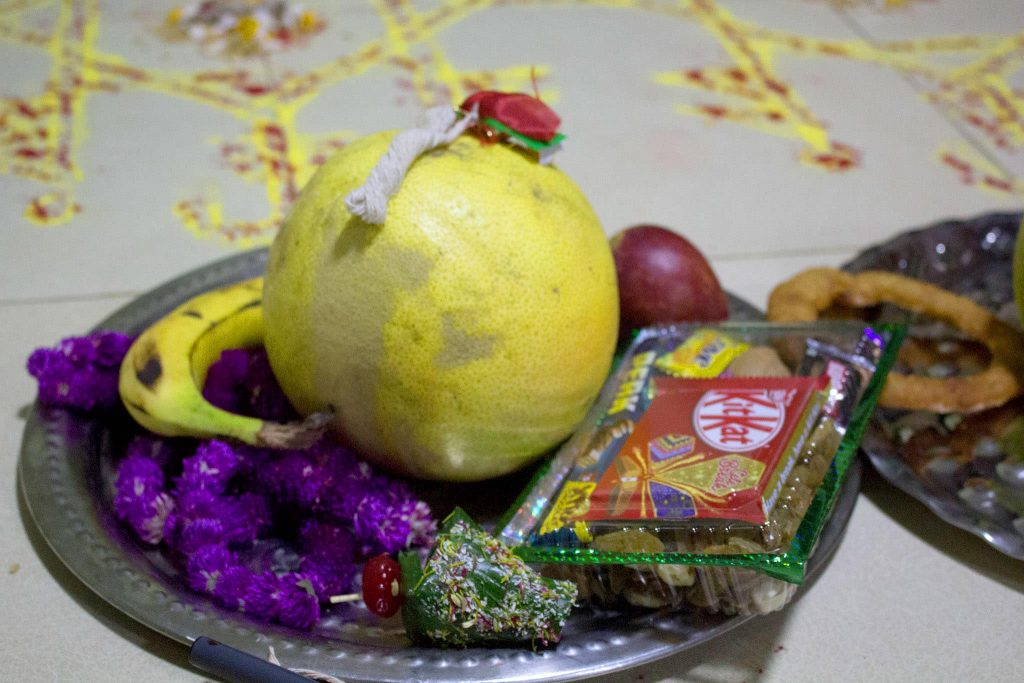Deepawali known as the festival of lights, is celebrated throughout Nepal, in the honor of goddess Laxmi (Goddess of Wealth), followed by the biggest festival Vijaya Dashami. It is also known as Tihar or Deepawali or Swasti among newar community. This festival has its own significance. It is celebrated for 5 days, each day has its own significance, however, laxmi puja has the major importance during Deepwali.
The first day of Tihar is Kaag tihar (crow tihar). Crow is considered as a messenger of the devil, Ravan. The cawing of crows and ravens symbolizes sadness and grief in Hinduism, so devotees offer crows and ravens food to avert grief and death in their homes. Tihar among Gorkhas represents the divine attachment between humans and other animals.
Kaag Tihar is followed by kukur tihar (Dog Tihar), second day of Tihar. People offer garlands, tika and delicious food to dogs and acknowledge the cherished relationship between humans and dogs. This day is also observed as Narka Chaturdashi. Naraka Chaturdashi (also known as Naraka Nivaran Chaturdashi) is a Hindu festival, which is the second day of the five-day-long festival of Deepawali. The Hindu literature narrates that the asura (demon) Narkasura was killed on this day by Lord Krishna, Satyabhama and Goddess, Kali. The day is celebrated by early morning religious rituals and festivities followed on.
The third day of Tihar is Gai tihar. On the morning of the third day, people worship the cow. In Hindu religion, cow signifies prosperity and wealth. In ancient times people benefited a lot from cows. Its milk, dung, even urine was used for purposes like purification. Thus, on this day people show their gratefulness to the cow by offering them garlands and feeding them with the best grass available. Later in the evening is Laxmi puja (Goddess of Wealth & prosperous life) is celebraed and welcomed into their house. This day is considered to be amavash, the dark lunar phase. Hence, to welcome Goddess Laxmi, all the devotees use candles, and lights to brighten up their home.
The day is followed by the fourth day of tihar Goberdan puja or Mah puja in Newar community, celebrated in honor of our own body, that has allowed us to do a lot everyday. Although, popular amongst Newars, a new year ” Newar Sambat” it is also celebrated, while some Newars do not celebrate Mah Puja. Since, historians believed that on this very day, during Shah kingdom, many privately owned property was made government property. People also worship oxen and the day.
People who follow Vaishavisam, perform Govardhan Puja, the ritual is worship towards goverdhan mountain. Cow dung is taken as representative of the mountain and is worshiped.
The final day is Bhai tika, when sisters fast all day for their brother’s long life, worship their brothers, or their protectors from any kind of harm. Sisters worship their brothers with the seven-coloured tika. Additionally, they provide brothers with sweets, Makhamali (gomphrena globes) garland, a sacred cotton thread of Tantric importance, meant to protect their bodies.

The five days are celebrated with the cultural and religious importance. People welcome the second half of the year i.e. winter season and the wedding seasons.
